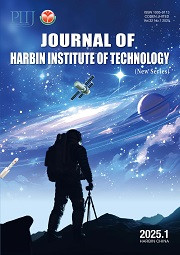| Author Name | Affiliation | | Feroz Khan A.B | Department of Computer Science, Syed Hameedha Arts and Science College, Kilakarai 623806, Tamil Nadu, India | | Weslin D | Department of Information Technology, Mohamed Sathak AJ College of Engineering,Siruseri, Chennai 603103, India | | Dilli Babu M | Department of Information Technology, Panimalar Engineering College, Chennai 600123, India | | Mohammed Muzaffar Hussain | Department of Information Technology, C.Abdul Hakeem College of Engineering and Technology, Melvisharam 632509, India |
|
| Abstract: |
| Internet of Things (IoT) networks are characterized by a multitude of wireless, interconnected devices that can dynamically join or exit the network without centralized administration or fixed infrastructure for routing. While multipath routing in IoT networks can improve data transmission reliability and load balancing by establishing multiple paths between source and destination nodes, these networks are susceptible to security threats due to their wireless nature. Traditional security solutions developed for conventional networks are often ill-suited to the unique challenges posed by IoT environments. In response to these challenges, this paper proposes the integration of the Ad hoc On-demand Multipath Distance Vector (AOMDV) routing protocol with a trust model to enhance network performance. Key findings from this research demonstrate the successful fusion of AOMDV with a trust model, resulting in tangible improvements in network performance. The assessment of trustworthiness bolsters both security and routing capabilities in IoT networks. The trust model plays a crucial role in mitigating black hole attacks in IoT networks by evaluating the trustworthiness of nodes and helping in the identification and avoidance of malicious nodes that may act as black holes. Simulation results validate the efficacy of the proposed trust-based routing mechanism in achieving its objectives. Trust plays a pivotal role in decision-making and in the creation of secure distribution systems. By assessing the trustworthiness of nodes, both network security and routing efficiency can be enhanced. The effectiveness of the proposed trust-based routing mechanism is scrutinized through simulations, offering insights into its potential advantages in terms of improved network security and routing performance in the context of the IoT. |
| Key words: Mobile ad-hoc network (MANET) routing Ad hoc On-demand Multipath Distance Vector (AOMDV) trust model security |
| DOI:10.11916/j.issn.1005-9113.2023068 |
| Clc Number:TN915 |
| Fund: |






